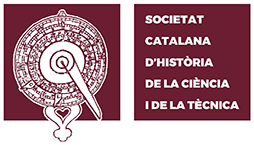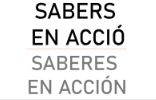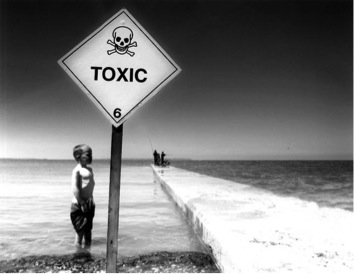8th European Spring School on History of Science and Popularization
LIVING IN A TOXIC WORLD
(1800-2000):
EXPERTS, ACTIVISM, INDUSTRY AND REGULATION
Maó (Menorca), 14-16 May 2015
REGISTRATION OPENED
Organized by José Ramón Bertomeu-Sánchez and Ximo Guillem-Llobat
Institut Menorquí d’Estudis (IME)
Societat Catalana d’Història de la Ciència i de la Tècnica (SCHCT)
European Society for the History of Science (ESHS)
Institute for the History of Medicine and Science López Piñero (University of Valencia)
In recent decades, studies on experts and environmental history have becomeblooming areas of research placed at the crossroad of many academic traditions including history of science, technology and medicine. Studies on expertise and experience were once dubbed as the «third wave of science studies«» (Collins and Evans, 2003). Numerous workshops and meetings have been organized around the problems of legitimation, authority, credibility and extension of expert knowledge in different social and cultural environments: criminal investigation departments, patent and tort litigation, advisory committees, think tanks, international organizations, industry, etc. A large number of papers, collective publications and monographs have been published on these topics during the last decade from a broad variety of perspectives ranging from Collins and Evans (2007) to Oreskes and Conway (2010). Environmental history has also experienced an outstanding growth in the last decade, as can be clearly perceived throughout the numerous and successful initiatives promoted from the American and the European Societies for Environmental History. Many of the studies focus on the interaction among the actors (experts, activists, NGOs, stakeholders, industry, government, etc.) involved in the process of regulating toxic products.
Different perceptions of toxicants and their risks, cultures of risk assessment and civic epistemologies have been mostly studied in contemporary societies. More recent studies have shown the long roots of «risk society» before the twentieth-century (Fressoz, 2012, Le Roux, 2011). Other authors have reviewed the role of industry in making both knowledge and ignorance about toxicants, sometimes promoting public debates on the uncertainties concerning the causal connections between toxic products and health problems (Markowitz-Rosner, 2002; Proctor- Schiebinger, 2008, Oreskes-Conway, 2010, etc.). The limits of the legal systems (tort litigation) in preventing and managing risks from toxicants has been analysed by historians and philosophers of law (Cranor, 1993, 2011). Many of the studies are focussed on a particular product and its regulation, for instance, lead (Markowitz-Rosner, 2013), tobacco (Proctor, 2011), DDT (Kinkela, 2011), radioisotopes (Creager, 2013), hormone disruptors (Langston, 2010), fumes (Mosley, 2001; Uekoetter, 2009, Le Roux, 2011), etc. These and many other perspectives on environmental history and recent studies on expertise and experience have converged into a fascinating domain, which we would like to explore in the 8th European Spring School in History of Science and Popularization. The thrust of this School emerged during the seminars on «Toxic Atmospheres» which were organized between 2012 and 2014 in Valencia (http://goo.gl/oI3M2h).
As in previous years, the School is structured in four key-note lectures and a research workshop. The common topics are the mentioned issues regarding the regulation and risk management of toxics from the perspective of different actors (industry, government, experts, activists, stakeholders, patients, etc.) during the last two centuries (1800-2000). The keynote lectures will be delivered by four outstanding scholars covering four particular toxics (fumes, pesticides, lead, and mercury) from the beginning of nineteenth century to the end of the twentieth century. The workshop «Living in a Toxic World» is organized in three thematic sessions and one poster session. Participants (see detailed programme for details) will present papers on many other toxicants (polymers, aluminium, asbestos, arsenical pigments, etc.) as well as studies on food additives, regulation of drugs and environmental toxicology. Participants will deal with issues related to regulation, standardization, risk management, experts, law, public health, activism, controversies and so on. The School sessions and discussions will be conducted in English.
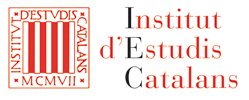 |
 |
||
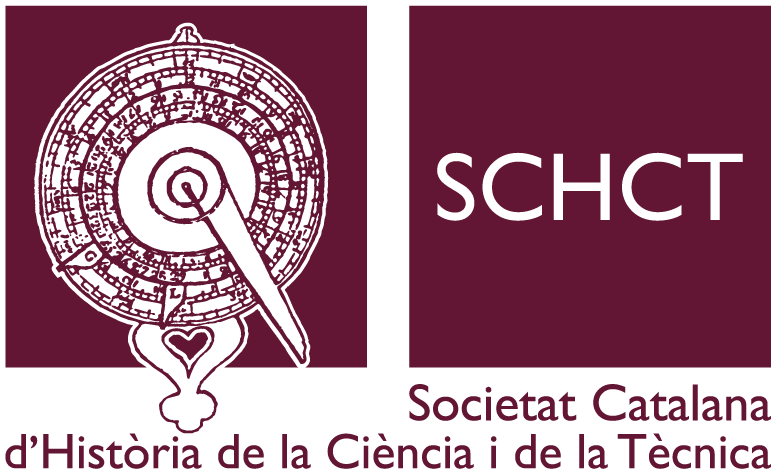 |
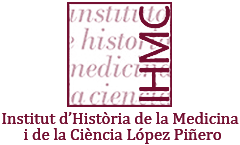 |
 |
|
 |
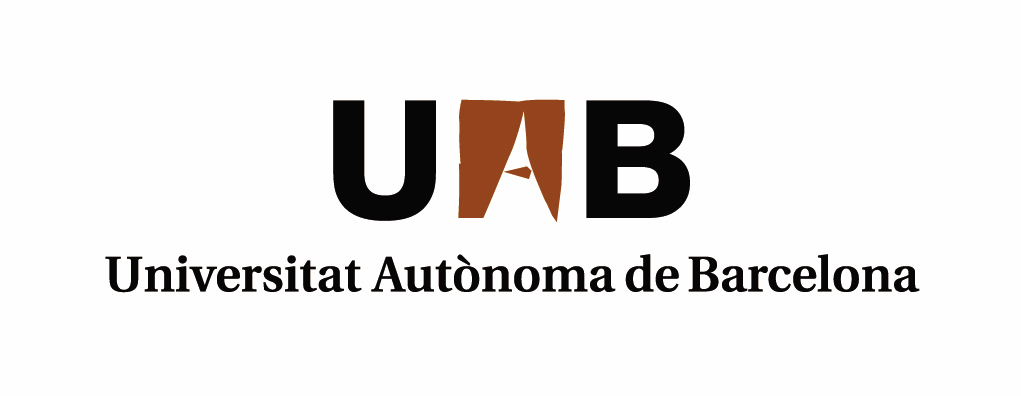 SGR 2014-1410 SGR 2014-1410 |
||
 |
DEADLINES
February 20, 2015: Deadline for grants application
March 10, 2015: List of accepted grant applications at the website
March 31, 2015: Deadline for registration with discount
May 8, 2015: Deadline for registration
May 14, 2015: Beginning of the school
REGISTRATION AND FEES
250 € Pack 1: Conference 2 nights individual room in Hotel Mirador d’es Port (Vilanova, 1, 07701 Maó)
200 € Pack 2: Conference 2 nights individual room in Hostel Jume (Concepció, 6, 07701 Maó)
150 € Pack 3: Conference fees, 2 nights shared room in Hostel Jume.
100 € Pack 4: Conference fees.
All listed prices for registrations before 31 March 2015
Payment by credit card or bank transfer: REGISTRATION
GRANTS
A limited number of grants (covering two nights at local Hotel and conference fees) will be available. Applicants are requested to send a brief CV (two pages) and a brief text justifying the need of funding.
Please direct proposals and queries to Ximo Guillem (ximo.guillem@uv.es) and José Ramón Bertomeu-Sánchez (bertomeu@uv.es).
PROGRAMME SPRING SCHOOL
Living in a Toxic World (1800-2000): Experts, Activism, Industry and Regulation
Maó (Menorca), 14-16 May 2015
Thursday 14 May 2015
Morning
09:30-11:30 Registration
11:30-12:30 Welcome and Introduction
12.30-13.00 Posters
Evening
16:00-17:00 Gerald Markowitz (John Jay College and Graduate Center, CUNY) Lead Wars: The Politics of Science and the Fate of Children
17:00-17:30 Discussion
17:30-18:00 Coffee break
18:00-20:00 Workshop 1: Toxicants. Comments by Gerald Markowitz and Nathalie Jas
Friday 15 May 2011
Morning
09:00-10:00 Nathalie Jas (RiTME Research Unit, INRA) Pesticides. How and why regulating «unruly technologies»? An historical analysis.
10:00-10:30 Discussion
10:30-11:00 Coffee
11:00-12:30 Workshop 2: Foods and Drugs. Comments by Andrew Cunningham
12:30-13:00 Posters
Evening
15:45-16:00 Coffee
16:00-17:00 Thomas Le Roux (Centre de Recherches Historiques, CNRS/EHESS) Fumes: the great shift of risk management (France, Great Britain, 1750-1850)
17:00-17:30 Discussion
17:30-18:00 Coffee
18:00–19:30 Workshop 3: Toxic Environments. Comments by Thomas Le Roux
Saturday 16 May 2014
Morning
09:30-10:30 Andrew Cunningham (Cambridge University) Mercury rising, mercury falling
10:30-11.00 Discussion
11:30-12:00 Coffee break
12:00-12:30 Concluding Remarks
12:30-13:30 General discussion
14:00 Closing lunch
WORKSHOPS AND POSTERS
POSTERS
- Sacha Tomic (Institut d’histoire du monde contemporain) – «The Toxicological Laboratory of Paris during Jules Ogier’s direction (1883-1911)».
- Jaume Valentines (CIUHCT, UNL) – «Veiling the invisible. Spaces, architecturesand publics of a nuclear reactor in Barcelona city (1962-2005)».
- Lucia Sapiña (Universitat de València) – «It’s Panic Time at the School. ChildhoodCancer and Electromagnetic Fields’ Controversy: a Spanish Study Case».
- Romain Tahar (PSA Peugeot-Citroën/ UTBM Belfort Montbéliard TechnologyUniversity) – «Mass-producing vehicles in Eastern France: PSA Peugeot-Citroën, Production Center of Sochaux and territoriality (1945-2000)».
- Nicolas Maughan (Université Aix-Marseille) – «Controlling waterborneinfectious diseases: The endless struggle of Marseilles to become a healthyplace (1839-1953)».
- Catherine Rushmore (University Oxford Brookes) – «British Gardeners andChemicals, 1957- 1977».
WORKSHOP 1. THREE GROUPS OF TOXICANTS
Domestic toxicants:
- Amélie Müller (University of Oxford) – «Devilish Designs: the Wallpaper Industryand Arsenical Pigments in Britain, France and Germany, 1850-1900».
- Yeonsil Kang (Graduate School of Science and Technology Policy (STP), KoreaAdvanced Institute of Science and Technology (KAIST) – «The body of evidence:asbestos, environmental activism, and expertise in risk-making in South Korea».
Toxic Polymers:
- Aurélien Féron (EHESS – CERMES3) – «Biochemical persistence and politicalrecalcitrance: a history of scientific and political reframings of the PCB pollutionproblem, in France, since the end of the 1960’s».
- Mathieu Baudrin (Centre de Sociologie de l’Innovation (CSI), Ecole des Mines deParis) – «Regulating Vinyl Chloride Monomer: Towards a Specific Configuration».
Aluminium:
- Olivier Chatterji (University Pierre Mendès France, Grenoble II. Laboratoire deRecherche Rhônes-Alpes (LARHRA)) – «Farmers versus the Aluminium Industry: Public Health, Hygienic expertise and Conflict in the Maurienne valley (1905-1914)».
- Pavithra Vasudevan (Department of Geography University of North Carolina -Chapel Hill) – «The geography of aluminum towns».
WORKSHOP 2. FOOD AND DRUGS
- Carolyn Cobbold (University of Cambridge) – «The introduction of chemical dyesinto food – industrial risk or revolution?».
- Claas Kirchhelle (Wellcome Unit for the History of Medicine, University ofOxford) – «Toxic Confusion: the dilemma of antibiotic regulation in West Germanagriculture (1951-1990)».
- Solène Lellinger (SAGE, Université de Strasbourg) – «Drug, expertise and regulation: what could we learn from drugs scandals?».
WORKSHOP 3: TOXIC ENVIRONMENTS
- Alexis Zimmer (Sociétés, Acteurs, Gouvernement en Europe (SAGE – UMR 7363)/ DHVS) – «Toxic Fogs. A history of the production of industrial meteors, 19th /20th centuries. The case of the Meuse valley».
- Roberto Cantoni (LATTS -IFRIS, Université Paris-Est) – «Naples? Garbage!”Epidemiological controversies in 21st century South Italy» .
- Stathis Arapostathis (National and Kapodistrian University of Athens) – «Stabilizingand De-Stabilizing Toxic Regimes: Experts, Law and Agriculture Politics in Greece1950-2010».
Place: All sessions will take place at the Institut Menorquí d’Estudis (Camí des Castell, Maó, Menorca).
Note: This programme is provisional. A definitive one will be published by the beginning of April. Minor changes are expected concerning the order and hours of talks. See <http://goo.gl/S9DI6C> for updates.
BIBLIOGRAPHY
Toxicants, Health and Regulation since 1945. Edited by Soraya Boudia and Nathalie Jas. Pickering & Chatto: London. 2013.
Powerless Science? Science and Politics in a Toxic World. Edited by Soraya Boudia and Nathalie Jas. Berghahn Books: London. 2014.
“Essay Review. Chemicals and Environmental History”, By Nathalie Jas. Ambix 61 (2), (2014): 194-198.
Common Ground: Integrating the Social and Environmental in History. Edited by Geneviève Massard-Guilbaud and Stephen Mosley. Cambridge Scholars Publishing: Newcastle. 2011.
Lead Wars. The Politics of Science and the Fate of America’s Children. By Gerald Markowitz and David Rosner. University of California Press and Milbank Memorial Fund: New York. 2013.
Deceit and Denial. The Deadly Politics of Industrial Pollution. By Gerald Markowitz and David Rosner. University of California Press and Milbank Books: New York. 2002.
Débordements industriels : environnement, territoire et conflit (XVIIIe-XIXe siècle). Edited by Thomas Le Roux et Michel Letté. Presses universitaires de Rennes: Rennes. 2013
Le laboratoire des pollutions industrielles : Paris, 1770-1830. By Thomas Le Roux. Albin Michel: Paris. 2011.
Golden holocaust: Origins of the Cigarette Catastrophe and the Case for Abolition. By Robert N. Proctor. University of California Press: Berkeley. 2011.
Toxic Airs. Body, Place, Planet in Historical Perspective. Edited by james Rodger, Ann Johnson. University of Pittburgh: Pittburgh. 2014.
The Turning Points of Environmental History. Edited by Frank Uekoetter. University
of Pittsburgh Press : Pittsburgh, Pa. Published in cooperation with the Rachel Carson Center, 2010.
